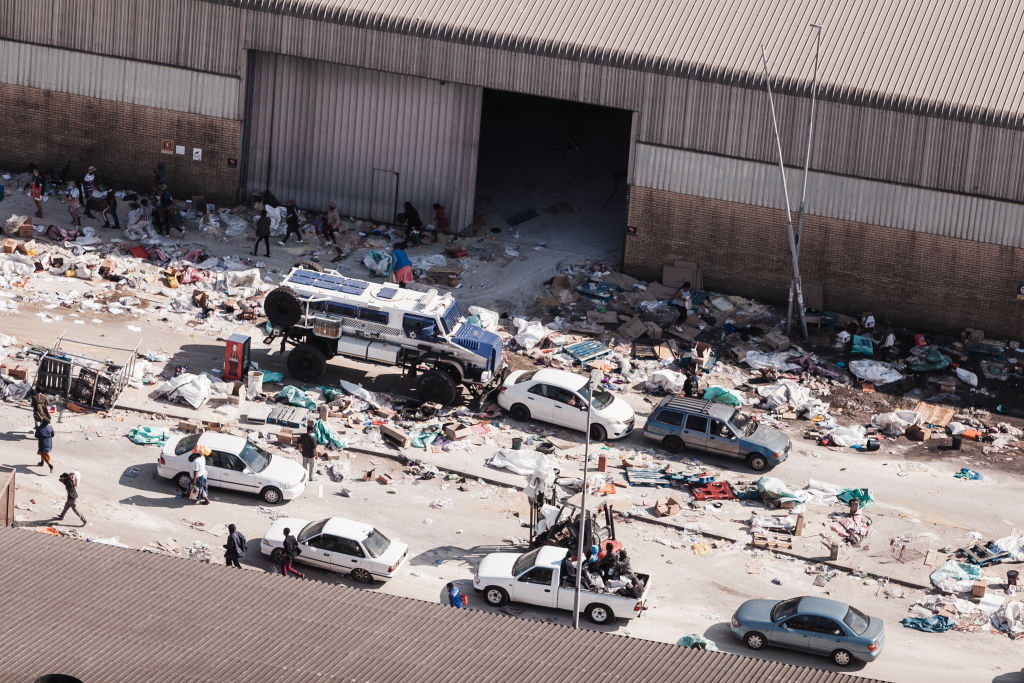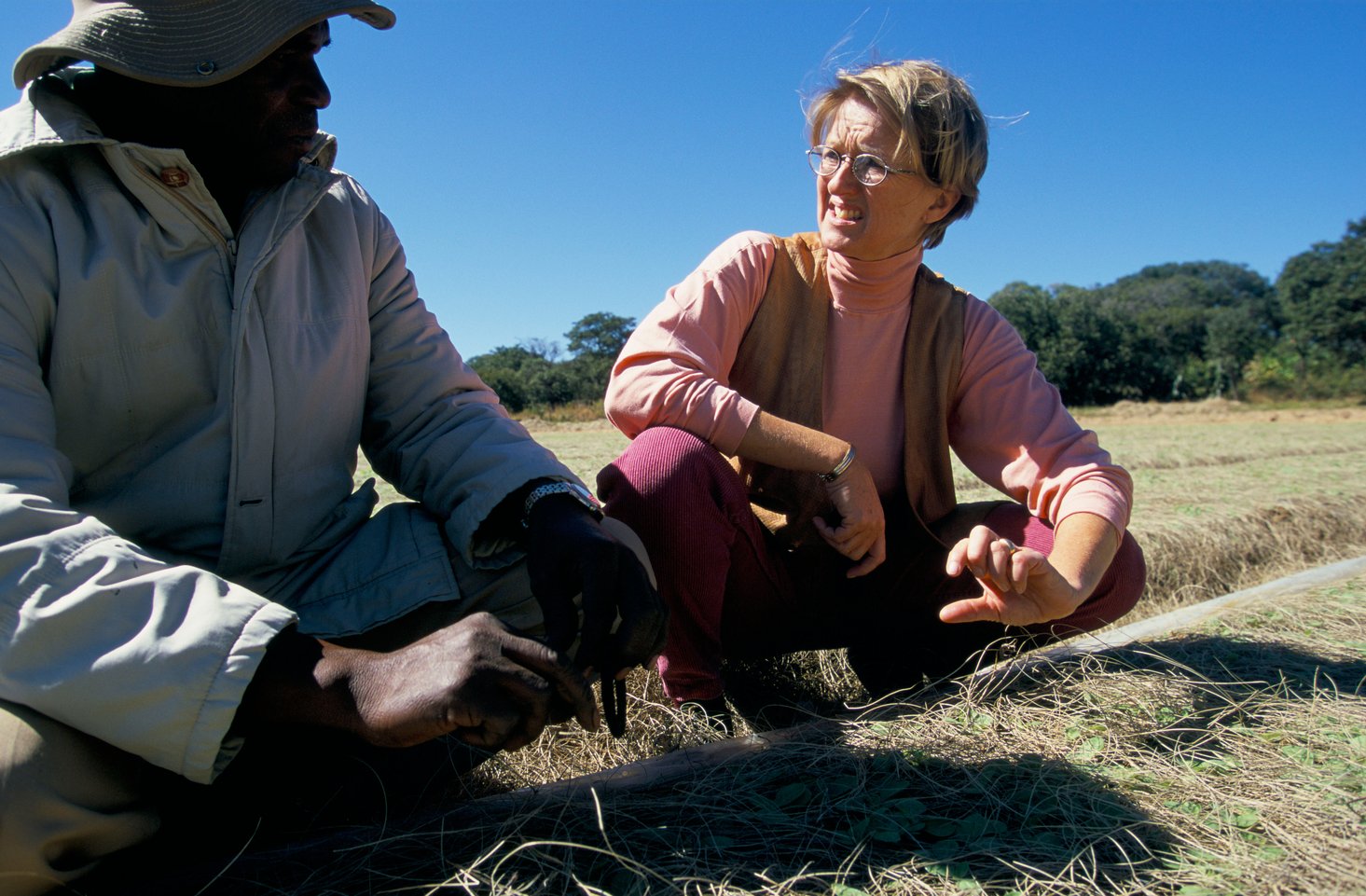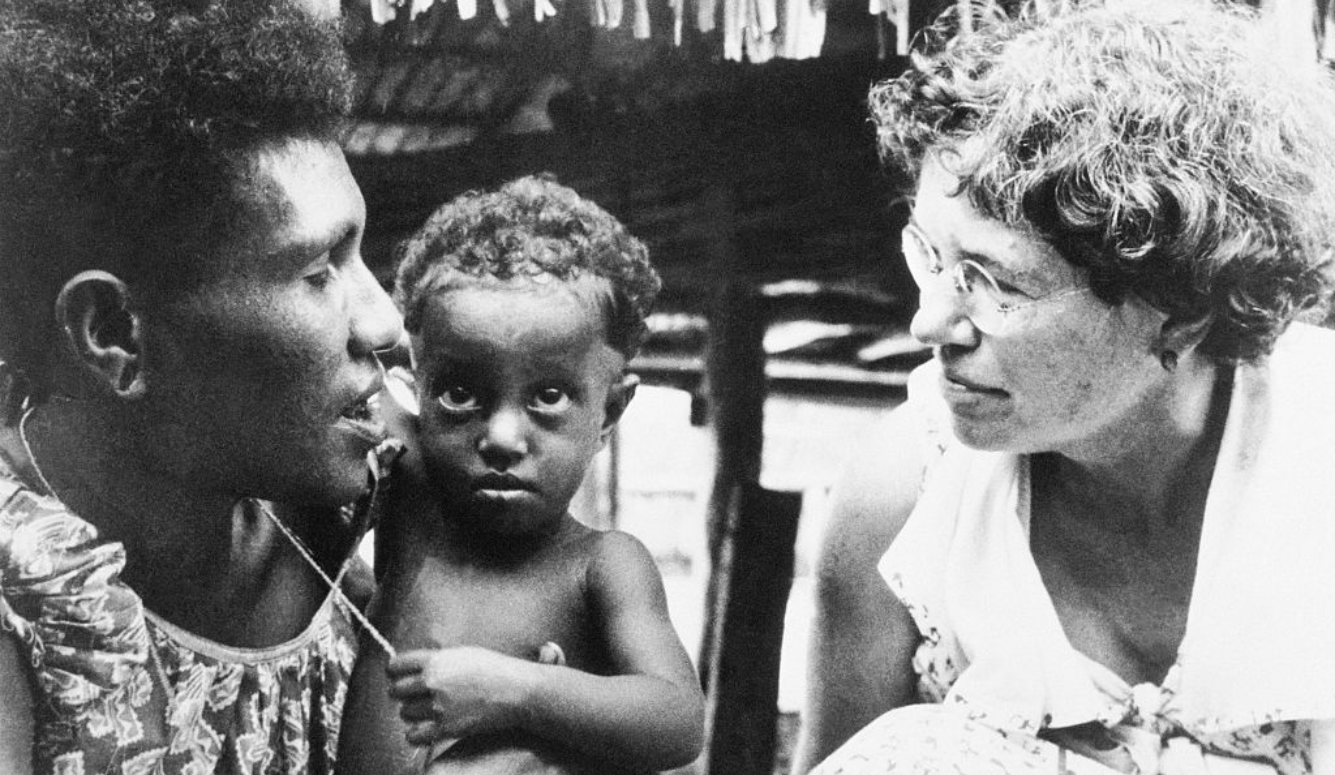News
Why Violence and Looting Have Exploded Across South Africa
The poor and unemployed have demonstrated that their patience is limited and that they are a keg of dynamite waiting to go off.

The explosion of looting and destruction which has overtaken South Africa has left the government of President Cyril Ramaphosa shaken and dazed, its credibility and legitimacy undermined. Ramaphosa’s broadcasts to the nation, appealing for calm, full of cliches and generalities, have met with derision. Nobody doubts that South Africa has reached another Rubicon, one which the ANC (African National Congress) government may be unable to cross.
The explosion of violence followed the jailing of former President Jacob Zuma on a charge of contempt for refusing to appear before the Commission of enquiry into the wholesale looting of the state which took place under his presidency. Nobody seriously doubts that Zuma stole millions, probably billions of Rands and he still faces a long list of charges for racketeering, money-laundering and sundry other crimes. But Zuma still has a large following among his Zulu followers and effectively threatened to make the country ungovernable if the government dared to jail him.
Undoubtedly the rioting began as his followers sought to make good on this threat. Zandile Gumede, the former mayor of Durban, removed for gross corruption, undoubtedly played a key role as did former members of the state security services who played such a key role under Zuma’s presidency, together with other members of the Zuma faction which demands sweeping nationalisations and strong measures against “white monopoly capital.” Moreover, Zuma has always had strong connections into criminal networks and these have clearly been active too. (This combination of left wing views, corruption, and criminality can be found elsewhere in Africa too.)
However, once the rioting and looting of shops and hijacking of trucks on the highway began, with the police clearly scared and ineffective, word rapidly spread that you could go “shopping without money,” creating huge excitement among the ranks of the millions of poor and unemployed Zulus who inhabit the townships and squatter camps around Durban and Pietermaritzburg, and from there spreading into every small town of the province. Most of the looters and miscreants were unconcerned about Zuma’s fate. They simply heard along the grapevine that trouble was going on and realised that opportunity was staring them in the face.
They flocked in huge numbers to the shopping malls and began to loot them. Quickly the spree spread to Johannesburg, home to many more Zulus—though many others joined in. It was a whole-of-community thing: most of the looters were poor and on foot but not a few arrived in cars, sometimes very expensive cars. Some even came with vast trailers to haul away freezers, fridges, and cookers. Huge queues of cars swamped the freeways, all heading for the malls, and other forms of criminality blossomed—protection rackets, attacks on and thefts from other motorists, anything that offered a quick buck.
In a sense this had been coming for a long time. When the ANC was first elected in 1994 its posters promised “Jobs, jobs, jobs!” but paid little heed to that once they were elected. In 1995 the average number of unemployed, according to official figures, was 1,698,000 or, if one took the expanded definition of unemployment, including those who had given up looking for a job, the figure was 3,321,000. With only a few exceptional periods to the contrary, that figure has grown steadily and hugely to surpass 11.4 million today. Since the unemployed have little or no income, this has also meant a huge growth in both poverty and inequality. The ANC has routinely deplored poverty and inequality but it has generally tried to pretend that this is part of the “apartheid inheritance.” As the figures show, this is the opposite of the truth.

If you assume that each of those 11.4 million has two or three dependants, we are talking of households comprising 30 million people—half the entire population or even more. They are, for the most part, sitting in shacks, cold, hungry, without alcohol (banned as part of the COVID lockdown), insecure, with nothing to do and with almost no hope of a job. It is a picture of pure misery. These are the greatest victims of ANC misrule. Many of them are young people who have never worked in their life and who have given up hope that they ever will. For the young women among them prostitution is almost their only hope of an income. One looter, when interviewed on TV, frankly admitted that he stole every day because otherwise his 15 year old sister would “have to sleep with a grandad.”
In practice the plight of the unemployed and poor has been ignored. The government is far more concerned with the “haves” within its coalition—the BEE (Black Economic Empowerment) capitalists, the public sector workers and the trade union bosses. The government’s offer of an extra R18 billion ($1.25 billion) for already well-paid public service workers came only days before the unrest and was, effectively, an insult and a provocation for the unemployed. Similarly, Ramaphosa attempted to garner public sympathy for the “plight” of MPs—who are among the one percent best paid people in the country.
Most striking of all, however, is the BEE legislation which has, not surprisingly, been nominated by foreign investors as the biggest single drawback to investing in South Africa. It is, after all, effectively a tax on investment—if you want to invest in South Africa you have to more or less give away a large chunk of your equity to BEE partners who have nothing to offer by way of skills or capital other than an ability to get government ministers to take their calls. This is straightforward crony capitalism. The effect of such legislation is to push foreign investment away—at the cost of many jobs—simply in order to line the pockets of a handful of ANC-connected cronies.
The most blatant example of all is the mining industry which has been losing thousands of jobs for many years under the weight of crazy BEE constraints. Yet the Mining Charter—demanding ever higher BEE quotas—has been held over the industry for years on end. The result is that no new shafts are sunk and mining bosses are quite open about the fact that, even in the midst of the current commodity price boom, they can’t justify increasing their exposure to South Africa. If the Minister for Mineral Development, Gwede Mantashe, would just drop the Mining Charter he would see thousands of new jobs appear. But he won’t because the interests of a few BEE capitalists are far more important to him than any number of unemployed.
Similarly, government is attentive to the trade unions of those in work but all it has for the unemployed is crocodile tears. The unemployed know this all too well and it is a key part of their hopelessness—and their desperation. South Africa’s tight labour laws greatly privilege those in employment, giving the unemployed little opportunity to compete for jobs. Moreover, the huge weight of endemic corruption together with inept policy choices means that South Africa is now in its seventh consecutive year of falling real per capita incomes. People are getting steadily poorer and COVID lockdowns have increased the misery, costing many jobs.
If people who are ignored and treated like this are told that the time has arrived for shopping without money, how can one be surprised that they respond in such numbers and with such enthusiasm? That sort of shopping is fun and exciting and you end up with food, drink, and a new TV. What’s not to like? Compared to that, Ramaphosa’s “appeals for calm” or little lectures about the rule of law are thin gruel indeed.
But among the mass of looters are more sinister elements. Criminals naturally flourish in such an environment, either organizing massive heists of goods or using the mayhem as cover for other crimes. But there are also clearly political elements trying to make the country ungovernable by attacking key pieces of infrastructure—there have been attacks on reservoirs, over 120 attacks on electricity sub-stations, and the road leading to the Sapref refinery in Durban (which produces one third of all South Africa’s petrol) has become so dangerous due to continuous attacks on vehicles that the refinery has had to close down completely. Already there are huge queues at garages and a major fuel crisis is building. Moreover, as soon as a shop, warehouse, or factory has been looted it is set on fire. None of these crimes produce money and the destruction of such buildings is bound to cost jobs and lead to many more people going hungry in future.
The government’s response has been limp in the extreme. The looting started on a Friday and Ramaphosa said and did nothing until the following Monday. Ministers were silent and invisible. The Minister for Police, Bheki Cele, who comes from Durban, has still not visited the city. There is general indignation that the police have been so passive, usually just standing by and watching the looting going on. They are, of course, hugely outnumbered, though they are armed. There are many cases of the police themselves operating protection rackets and demanding “favours” from the public. Mr Cele makes no attempt to answer such points and generally appears wearing an extremely expensive cashmere coat and a Louis Vuitton scarf which alone costs about eight times the average weekly wage. When TV reporters interview looters they often say that everyone knows that ministers have been looting for years, so why pick on them?
Ramaphosa finally ordered 2,500 troops in to support the police but they make no difference: they too stand passively by as looting goes on, for the government is clearly terrified of the optics of a black government firing on poor black people. In any case, South Africa is a big country and the troops are far too thinly spread. Yet the looting goes on day after day and right before the government’s eyes the country is being destroyed, investor confidence is being undermined, and any hope of South Africa emerging from its economic crisis is vanishing. While only two provinces are affected, Gauteng is the country’s economic heart, producing 40 percent of its GDP, and Durban is the major port. The highway between Durban and Johannesburg is the country’s main economic artery and that has been closed for many days now.
With the forces of law and order so weak and inactive, vigilante militias have sprung up to protect many suburbs and, typically, to protect their local mall or supermarket on which that suburb depends. Often these vigilante groups are multiracial but usually they depend on white ex-members of the security forces. They are armed and determined to stop looting spreading to their homes. Most of South Africa’s Indian population lives in or around Durban and they have strong memories of the 1949 riots in which Zulus killed hundreds of Indians—for there is much ill-feeling between the two groups.
This time the Indians saw trouble coming when others didn’t, and the Indian township of Phoenix (where Gandhi once lived) is armed to the teeth. But the little Indian settlements to the north of Durban are more vulnerable. Verulam, for example, has been all but destroyed and the Indian community, having lost all its shops, has retreated to the Indian suburb of Everest Heights and forbidden Africans to set foot there. Vigilantes with guns, knives, and axes patrol the streets. I have seen pictures of the Africans who attacked one home there and were hacked open with axes.
Already food and fuel shortages are developing. No one is going to resupply malls that have been burned or, indeed, any shop that is vulnerable to looting. So even if the looting stops as the looters run out of targets, there is bound to be a major hunger crisis—which could drive people to even more desperate acts: the big worry is attacks on private homes. But ATMs have been destroyed, pharmacies ransacked, and drink shops pillaged so there will be shortages of medical and other supplies as well. Naturally, the COVID vaccination programme has stopped entirely and the frantic mixing of (mask-less) looters is bound to produce a fresh COVID spike. The Rand has dropped sharply and could fall more.

The government is in shock. Its standard election slogan is that it is building “a better life for all,” but what the riots point to is the colossal failure of ANC governance. It has emphatically not brought a better life for poor Africans, and one hears on all hands unfavourable comparisons with the old apartheid government: nothing like this occurred on its watch, after all. On radio, TV, and social media there is a torrent of angry comment, virtually all of it scornful of the government. Moreover, the government’s credibility and even its legitimacy has been undermined. Ramaphosa is consulting the leaders of other parties but he dares not form a national unity government (GNU), as so many demand, for the ANC is deeply divided and the Zuma faction would take any GNU as a sign that Ramaphosa was inviting the whites back into power.
As usual in such a crisis there is a huge national hunger for a strong man who will restore order with a firm hand. But Ramaphosa is weak, talks in generalities, and is very slow to act. In most African countries such a large demonstration of the government’s weakness and lack of resolve would result in a military coup but South Africa’s army has been cut to the bone and is probably not up to anything so ambitious. So, as usual in South Africa, some sort of normality will doubtless resume, ministers will return to their venal ways and there will be a pretence that things are alright again.
But they won’t be. The poor and unemployed have demonstrated that their patience is limited and that they are a keg of dynamite waiting to go off. The outlook is for terrible crises of hunger, and shortages of fuel and medical supplies. A great deal of social infrastructure has been damaged or destroyed—some 400 malls were attacked, including many pharmacies. The ANC is more divided than ever and the economy has taken an enormous blow. Without doubt real incomes will continue to fall.
And this is what the ANC has achieved after 27 years in power. Almost no one now believes that it can or will deliver a “better life for all,” and since that was its raison d’etre the party now finds itself in a new and very difficult environment. For years in opposition it boasted of how it would improve the life of the African masses, but it has found that the task of governance was a whole lot more difficult than it imagined and it is steering South Africa steadily towards the status of a failed state.






